By DAMIEN CAVE NY Times
RUSHDIMULLAH, Iraq, May 17 — The stories have come in by the dozens.
One man swore that he had personally buried two Americans. As soldiers quickly began digging, another man came up and asked why they were unearthing his cousin.
Other Iraqis have said they saw the Americans walking, encircled by their captors, and still more have fingered people who they thought might have something to do with the ambush on Saturday that killed four American soldiers and one Iraqi.
Thousands of soldiers are searching for three missing Americans taken during the attack, and sifting through the tips has become the hub of the manhunt. A few have panned out, while most have led nowhere — deliberately so in some cases, many Americans suspect.
The false alarms highlight the challenge American troops face here in a Sunni stronghold where many residents resent the American presence. And for the soldiers who are searching, the disappointments can be heartbreaking.
Sgt. First Class Phitsidane Panpradith, 34, was with the first unit to arrive at the scene of the attack on Saturday. He rushed in from a patrol base a few hundred yards away, and maneuvered around two roadside bombs to get there.
What he saw — two burning vehicles, dead soldiers — horrified him. Searching for his missing friends, he said, offered some of the only comfort he could find.
So when an Iraqi informer said the three Americans could be found near the Caveman canal outside Cargouli village, Sergeant Panpradith moved quickly.
He gathered about 15 men and set out on a grueling 12-mile march through fields and orchards, avoiding the bomb-strewn roads, in the baking afternoon sun. He said he really thought they would find the missing soldiers. The men searched for several hours, racing the setting sun. They pushed through reeds, scoured houses. But they found nothing.
“It was dry,” Sergeant Panpradith said Thursday, at a combat outpost on the same road where the attack had occurred. “That’s just like everything else out here — it’s just sifting through it all and trying to find what we can.” Separating fact from fiction, good intelligence from bad, has defined the war in Iraq since it started. But the units searching for their missing comrades here in the lush farmland known as the Triangle of Death face an especially daunting challenge.
Al Qaeda in Mesopotamia, and a number of other Sunni insurgent groups, have become so interwoven into the rural towns and villages here that separating disinformation from fact or rumor requires the skill of prosecutor, interrogator and cleric combined.
The mutual distrust between the Americans and the Iraqis seemed to ensure an endless circle of suspicious glares and accusations.
“The Iraqis think we want to take over their country,” said Sergeant Panpradith, of Company A, Fourth Battalion, Second Brigade, 10th Mountain Division. At the same time, he said, “We have to keep going back to them.”
“They know something,” he said. “A lot of them know something.”
Sergeant Panpradith and several other soldiers said the Iraqis seemed to be intentionally passing on incorrect information, trying to hide involvement, trying to use tips to ingratiate themselves with American officers, or maybe just telling stories for attention.
In the hope of separating the credible from the ridiculous, commanders are offering a $200,000 reward for information that leads to the soldiers’ recovery.
As of Wednesday at noon, the unit responsible for the area — Second Brigade, 10th Mountain Division — said it had received more than 140 tips, in addition to intelligence gleaned from the more than 700 detainees arrested since the search started.
Commanders said a rush of information also arrived last June, after two Americans from the 101st Airborne Division were kidnapped from a small patrol base a few miles from where Saturday’s attack occurred.
This time, commanders said, witness accounts have proved less reliable. There have been no known public displays, live or through video — a tactic used during other high-profile kidnappings.
From the start of the hunt, credible information seemed mixed in with the dubious.
Col. Michael Kershaw, the brigade’s commander, said that within six hours of the attack, American and Iraqi forces detained two local residents who appeared to have been wounded during the ambush, including a teenager with his hand blown off by an explosion.
They confessed to taking part in the attack, he said. But there was a problem: their description of what had happened did not fit with what the Americans knew from forensic evidence.
American officials say they believe that the attack included several elements, including roadside bombs placed nearby to prevent reinforcements from arriving quickly. Either the detainees were lying or “maybe they were just paid to do certain things.”
Other leads have snaked into dead ends, too. Soon after the attack, the Americans heard that the soldiers were being kept at a house nearby. Troops and helicopters rushed to the area.
“I had a cavalry troop fly in all the way from Camp Striker,” Colonel Kershaw said, referring to a base near Baghdad. “Again, nothing significant.”
In interviews at several combat outposts in the area, American soldiers said the constant false alarms were beginning to take a toll. In many areas, soldiers have gone back to the same houses three and four times because they believed residents had information that they just were not passing on, or because the Iraqis’ initial account failed to check out.
Sergeant Panpradith, 34, said that he still had not fully accepted that his comrades might never be found, and that he would continue to knock on doors and ask questions.
“The searching helps,” he said. “Knowing that we’re doing something to help find our guys. It compensates for the feeling of helplessness we felt when we got to the site that morning.”
Staff Sgt. Tony Smith, 28, from Greenville, S.C., spoke for all the soldiers when he said they just wanted to do more. “They’re your comrades, your teams, your buddies,” he said. “It’s just you feel there’s always going to be that reason — you feel you could just do that one more thing to help. But you do what you can and you do what you’re told.”
Friday, May 18, 2007
Subscribe to:
Post Comments (Atom)
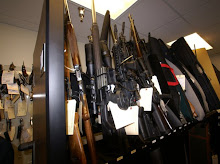
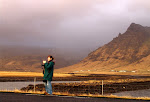
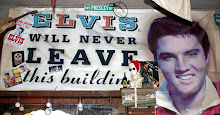


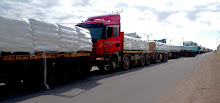
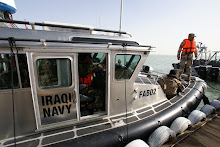

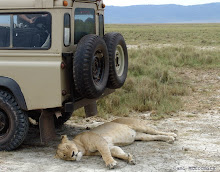
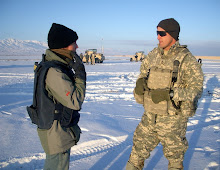



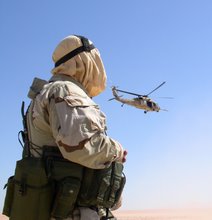
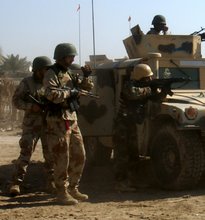
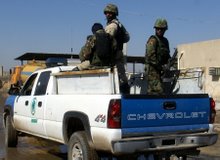
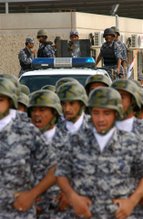
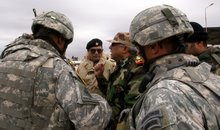
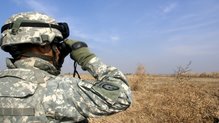
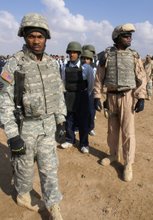

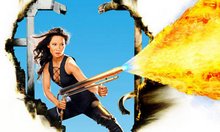
No comments:
Post a Comment